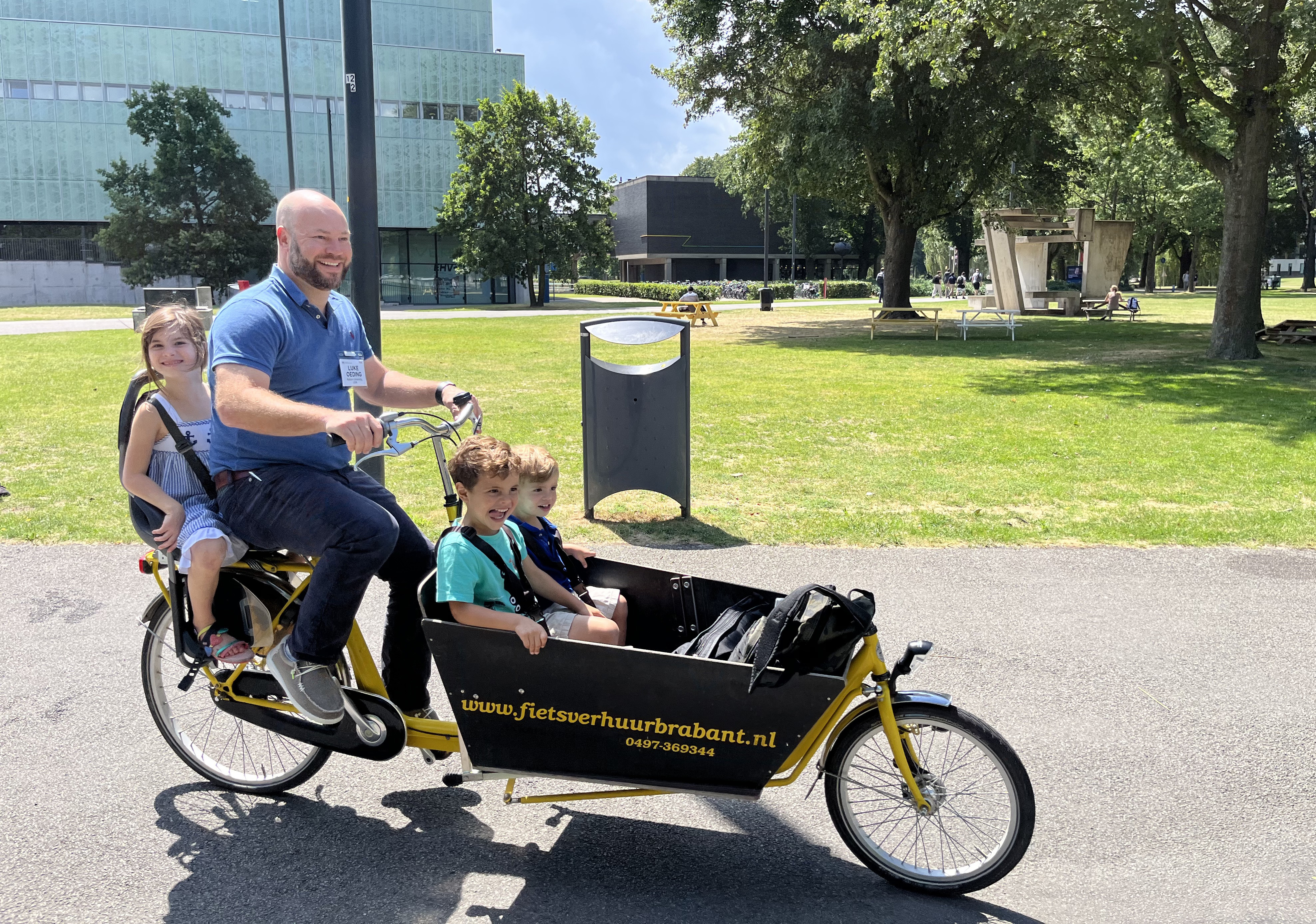Decisions are Happening Over Dinner
You’ve probably heard or experienced this one before: “Two men walk into a room of mostly men and discuss where and how the next conference will take place. The following year, attendance again consists of mostly men. After a shrug, they proceed to plan the subsequent iteration.”
At the 2023 SIAM Conference on Applied Algebraic Geometry (AG23), which took place this July in Eindhoven, the Netherlands, I presented Auburn University’s bid to host the next AG meeting. Though I was of course disappointed that Auburn did not win the popular vote, I was glad that my longtime friend Jose Rodriguez’s bid for the University of Wisconsin–Madison did. UW–Madison has higher-capacity lecture halls, a commitment to offer the use of dorm rooms for the conference, and a beautiful beer garden by a lake. I’m sure that it will host a fantastic conference in 2025; in my (unbiased) opinion, SIAM AG meetings are the best!
But just before the bid presentations, I was struck by a somewhat troubling observation. The chair of the SIAM Activity Group on Algebraic Geometry praised the fact that women make up nearly 25 percent of the group’s overall membership. Can’t we do better than that? What are we missing in order to successfully bring more women into the fold?

For one thing, this business meeting occurred at 5:30 pm; anyone with children knows the challenge of early evening meetings, as childcare usually ends around this time. At the conclusion of business hours, children expect to be with their parents, have dinner, and engage in their nightly routines. Arranging childcare for a multi-day conference is both challenging and expensive.1 Some common (but often suboptimal) solutions include employing 24/7 care at home, paying for family members’ travel and bringing a caregiver to the venue, attempting to split childcare and meeting attendance with a spouse, or simply forgoing the conference entirely. It stands to reason that women—and especially women with children—were significantly underrepresented during the evening business meeting at AG23. In fact, I only recall seeing two or three mothers with children among the approximately 700 attendees across the conference’s five days. Hosting decision-making events at a time when childcare is next to impossible means that few people in the room will likely advocate for the concerns of the absent parents.
My wonderful wife and our three small children did come with me to Eindhoven, and we had a great time — we even all rode around in a cargo bike together! Nevertheless, my wife and I are very aware of the challenges and necessary sacrifices that accompany our participation in professional events. We try our best to share parenting responsibilities, but my wife often does more of the childcare in part because I am further along in my career. I see firsthand the difficulties that she faces while trying to start a career in academia as a woman with young children.
Of course, parenting is challenging and requires sacrifice. To me, it’s worth it! But we must also admit that historical scarcity and structural issues continue to limit the participation of women—particularly mothers—in scientific events. In order to make gains toward gender equity in science and mathematics, perhaps we should consider the following recommendations:
- Host business meetings at a time when childcare is typically available.
- Solicit input from people who are not physically present at the meeting or conference in question.
- Create a pool of funds (separate from the usual scientific budget) to support dependent care for invited speakers, which will enable the scientific committee to secure a variety of speakers regardless of their childcare needs.
- Brainstorm! Can we provide childcare at dinners so parents can fully participate in the networking that transpires at these events? Can we plan family-friendly social events as well?
Progress will continue to be limited until we include those who were not in “the room where it happens.”
1 Since 2013, SIAM has offered child care grants at its conferences. This benefit began with the SIAM Annual Meeting and now applies to all conferences over which SIAM has financial control. The grant amount for each meeting is determined by the number of conference days, and eligible expenses can include care at the attendee’s home. For more information, visit “Child Care” under “Lodging & Support” on the webpage of the SIAM conference in question.
About the Author
Luke Oeding
Associate Professor, Auburn University
Luke Oeding is an associate professor of mathematics and statistics at Auburn University.
Stay Up-to-Date with Email Alerts
Sign up for our monthly newsletter and emails about other topics of your choosing.



